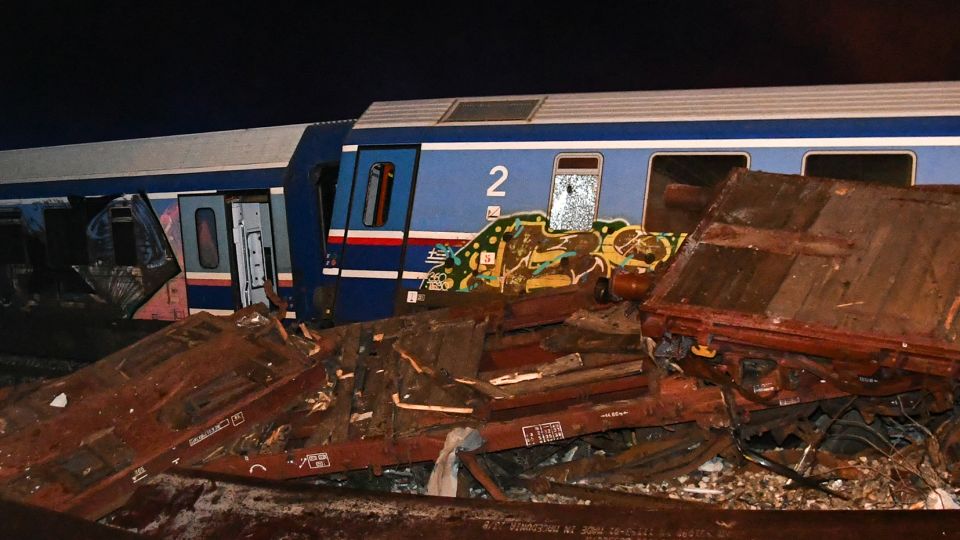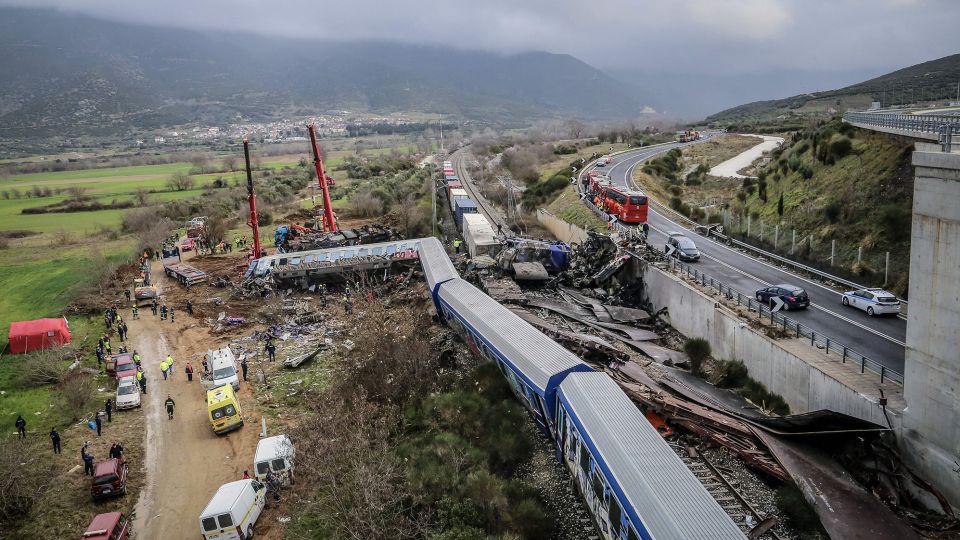Rescue workers are searching for survivors after a head-on collision between two trains in central Greece killed dozens of people and left scores injured, raising questions about the country’s poor track record of railway safety.

At least 38 people were killed when a passenger train carrying more than 350 people collided with a freight train on Tuesday, shortly before midnight, in Tempi, near the city of Larissa, leaving strewn carriages and heaps of debris in its wake. The Greek Fire Service said 57 people were being treated for their injuries in hospital, with six in intensive care units.
The country’s transport minister resigned Wednesday, saying the railway system the government inherited was “not up to 21st century standards.”

The two trains involved in the fatal collision were traveling on the same track for many kilometers before the incident occurred, state-owned public broadcaster ERT reported Wednesday. The passenger train had changed lanes and switched to a cargo track before it collided head-on with a freight train, according to ERT.
Recovery efforts are underway, with the focus on the first carriages of the passenger train, the Greek Fire Service said. The death toll is expected to rise.
Images on ERT showed plumes of thick smoke pouring out of toppled carriages and long lines of rescue vehicles next to them.
Most of the passengers involved in the accident were young, the head of the intensive care unit (ICU) at a local hospital where those with injuries are being treated, told ERT Wednesday.
The identification process of the dead, who have been transferred to the Larissa General Hospital, is ongoing with the use of DNA samples, Greek police spokeswoman Constantia Dimoglidou said.
The deadly crash raised questions about the integrity of railway infrastructure in Greece.
Greece has a weak record of railway passenger safety compared with other countries in Europe, tallying the highest railway fatality rate per million train kilometers from 2018 to 2020 among 28 nations on the continent, according to a 2022 report from the European Union Agency for Railways.
“It is a fact that we received the Greek railway system in a state that is not up to 21st century standards,” Greek transport minister Kostas Karamanlis said Wednesday as he resigned, adding that in the last three-and-a-half years the government had “made every effort to improve this reality.”
“Unfortunately, our efforts have not been sufficient to prevent such a bad incident. And this is very heavy for all of us and me personally.
“I hand in my resignation as transport and infrastructure minister. It is what I feel is my responsibility to do as the minimum sign of respect to the memory of the people who died so unjustly.”
In a televised address following his return from the crash site, Greek Prime Minister Kyriakos Mitsotakis said the collision was “mainly” due “to tragic human error.”
“Dozens of our fellow citizens, most of them young people, lost their lives there, in a horrible train incident, unprecedented in our country,” he said.
He said the transport minister’s decision to resign was honorable, and added that the heads of Hellenic Railways Organization (OSE) and its subsidiary ERGOSE have also submitted their resignations.
During his visit at the hospital in Larissa, where many of the injured are being treated, Mitsotakis met relatives of the dead and the missing.
“They asked me ‘why?’. And they told me ‘never again.’ We owe them an honest answer,” he said.
Greek police told CNN that they had arrested the station manager of a train station in Larissa on Wednesday as part of a preliminary investigation. A 59-year-old man is being held in the city and is expected to appear before the prosecutor, Greek police spokeswoman Constantia Dimoglidou said Wednesday.







